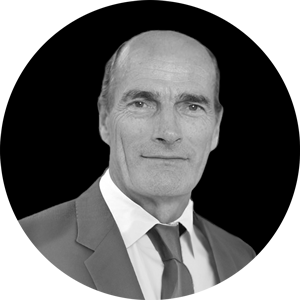What’s Paris like now?
Poor Mr Macron — Chief of the French tribe — is one of the bright stars of the new rising generation of shameless technocrats. His administration was advertised as the standard-bearer for equality, justice, and net-negative carbon emissions.
But now, two of his cabinet ministers have been accused of rape. ‘Sexual violence’ is the charge, which probably eases the burden of proof for the accuser.
Meanwhile, COVID restrictions have been lifted. No more masks, no more ‘sanitary pass’, life is returning to normal in the French capital. Everything ever written about Paris is true. We don’t need to add to it. It’s a beautiful city, especially in May. The sun shines on the sidewalk cafes. Luxury brands gleam from the shop windows. And tourists are once again blocking our way on the sidewalks.
A class apart
Prices are rising, too. And the elite class — the leftish techno-snobs who run the country — are getting bolder. Their program: make life more and more miserable for the common man as they pursue their own jackass goals.
‘The citoyen will have to get used to living with less’, we quote no one in particular, ‘and following orders; so we can reduce our carbon output’.
‘It’s time for degrowth’, they add. ‘And if the costs fall disproportionately on the common man, well, too bad.’
The educated, enlightened, well-off Parisian believes the world would be a better place if the uneducated, unenlightened, struggling yokels were kept in their place. Specifically, he wants them to use less energy, stay at home, turn down the heat, and not make a fuss about rising prices.
In France, as in the US, the deciders are a class apart. They have their agenda, hopes, schemes, and fantasies. And they don’t want ‘the people’ to get in the way.
In the US last week came evidence that ‘the people’ are stumbling. The big retailers — Costco, Walmart, and Target — were hit hard. Earnings were disappointing, leading to the steepest stock market falls since Black Monday of 1987. On Friday, Target had its worst day in 35 years.
Counting costs
Adding to their costs is a big increase in fuel prices. These companies spend hundreds of millions on energy. As the energy price — especially diesel fuel — goes up, their margins are squeezed.
And the available evidence shows the customer — the salt of the earth — is less and less able to afford to live in the manner he recently became accustomed to. The gimmie/stimmy is running out. Wages are supposed to be rising at a 5% rate. But consumer prices are rising even faster. Gasoline, for example, is up more than 30% in the last 12 months.
Basic expenses — food, shelter, and fuel — are going up so fast that households have less and less left over for ‘discretionary’ spending, which leaves the big box retailers with a lot of unsold products in the box.
And today, we feel their pain — the misery, desolation, and anguish of the working classes, both at home and abroad. These are the guys and gals with chainsaws and work belts…with 18 wheelers to edge into a tight spot…with a night shift to complete without falling asleep…with croissants to bake or laundry to wash.
These are the people who made the world what it is. They fell on the Normandy beaches…built the Brooklyn Bridge…put down the hardtop roads…baked the cookies…and delivered the mail.
And now, they are still the people who add the most real value to our lives. Not the hedge fund managers, influencers, or policymakers…but autoworkers, farmers, UPS drivers, cooks, baristas, waiters, carpenters, plumbers, and masons.
And here’s the gist of our story: the masses have been cheated, deleted, and mistreated. And it’s going to get worse.
In a nutshell, while the wealth of the crème de la crème was teased up by the feds, the working class — most of us — got nothing. The top 1% added US$36 trillion in wealth since 1999 — or about US$3 million per person. The bottom 50% added wealth too, but only about US$13,000 each. Each person at the tiny top got 230 times more money than those at the broad bottom.
But all that froth came at a cost. The feds had no extra money, so they pushed down interest rates, borrowed, and printed money to cover the extra costs. The result was US$50 trillion worth of debt added to the US economy since 1999.
Who will pay for it? We ‘the people’, of course. That is what the ‘inflation tax’ is all about.
More to come…
Regards,
 |
Bill Bonner,
For The Daily Reckoning Australia

